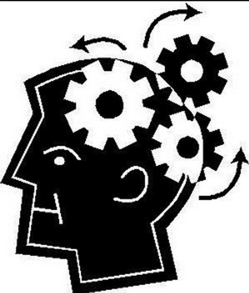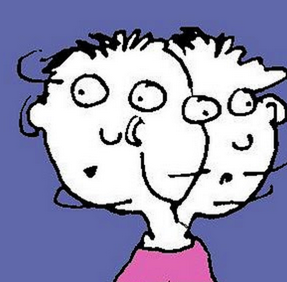Charles Bonnet Syndrome | More than Mental Health Hallucinations, CBS

 Understanding Mental Health | With so many different types of diagnosis out there, it is fascinating to learn about how each and everyone of us is so different.
Understanding Mental Health | With so many different types of diagnosis out there, it is fascinating to learn about how each and everyone of us is so different.
Case in point; dealing with visual hallucinations not caused by a serious mental health condition. Yes, this does exist.
The problem is that so many people who have experienced this are cautious as they don’t want to be immediately labelled as ‘Mental Health’ issue. Here is some information from Sharon M. O'Brien, MPAS, PA-C to better show / educate on what we’re referring to:
After much research, she came across an article about Charles Bonnet syndrome (CBS).
Charles Bonnet was a Swiss philosopher whose grandfather developed visual hallucinations when he lost his eyesight. CBS is seen in patients with macular degeneration, cataracts, diabetic retinopathy, and blindness.
Visual hallucinations are the only things that occur, because no other senses are involved. Patients with CBS do not a mental illness or cognition problems and are very aware that they are seeing images that are not there.
The visual hallucinations that CBS patients experience differ from psychotic hallucinations. In psychotic hallucinations, patients are involved in the hallucinations.
In CBS-induced hallucinations, patients simply see things, like watching a movie. They are not involved with the hallucination. Patients with CBS are usually, but not always, unafraid of what they see.
An interesting feature of this syndrome is that patients often have Lilliputian visions. In other words, they see characters or objects that are smaller than normal. They may see a person that is no bigger than their finger. One of the more common hallucinations in CBS is cartoon characters or characters with deformed faces.
A lot of color may be involved. Patients with CBS also often see visions of people and places of bygone eras; researchers cannot explain why this occurs.
It is estimated that one million patients have CBS. Many patients do not report the visual hallucinationscaused by CBS because they are afraid that they will be labeled insane or institutionalized.
- Because of this, the exact number of patients affected with CBS may be under reported. This is unfortunate because CBS can often be treated.
In many cases, the disorder resolves within 18 months — although many patients can have the syndrome for years. Behavioral therapy is often helpful. Surgical treatment, such as cataract removal, can cure the problem in some cases.
- Psychosocial support is essential — educating patients and assuring them that they are not mentally unstable is very important.
The key here is identifying the situation correctly to help a patient get the help they need vs. a blanket diagnosis. When someone tells you he or she is seeing things that are not there, don't automatically assume that this is a mental problem (unless history proves otherwise).
 If a person / patient is having visual problems, be sure to ask about hallucinations. Getting the help you need involves being open and sharing intimate details to your clinician / prescriber, through added education and communication finding the right help goes a long way.
If a person / patient is having visual problems, be sure to ask about hallucinations. Getting the help you need involves being open and sharing intimate details to your clinician / prescriber, through added education and communication finding the right help goes a long way.


